Chief concern is keeping things Pacific
Australia is strengthening strategic ties with Vanuatu with the opening of a new wharf that can be used by visiting naval ships and talks to establish a regular security dialogue.
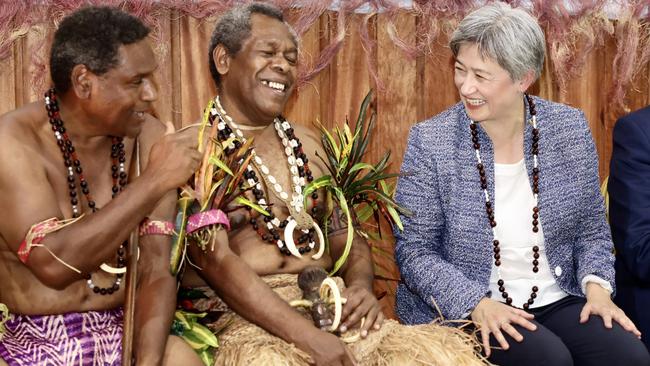
Australia is strengthening strategic ties with Vanuatu with the opening of a new wharf that can be used by visiting naval ships and talks to establish a regular security dialogue between the countries.
Foreign Minister Penny Wong arrived in Vanuatu’s capital, Port Vila, on Monday leading a bipartisan delegation that included her opposition counterpart Simon Birmingham, Minister for the Pacific Pat Conroy and opposition Pacific spokesman Michael McCormack.
The visit is part of a four-day trip that will include stops in Federated States of Micronesia and Palau. It is the first of its kind since 2018, and comes as the Albanese government ramps up the nation’s efforts to counter rising Chinese influence in the Pacific.
“With this bipartisan delegation, I hope we demonstrate to you our desire for friendship, for partnership, respect, and that Australia wants that relationship regardless of who is in government,” Senator Wong told an audience of the country’s most senior chiefs.
Senator Birmingham endorsed the comment, declaring: “Australia is at its strongest when we speak with one voice.”
In closed-door talks with Vanuatu’s Foreign Minister Jotham Napat, Senator Wong and Mr Conroy discussed an enhanced security dialogue to provide a high-level forum to raise issues such as illegal fishing, maritime security and economic coercion. The talks on the proposed dialogue come amid progress on a new defence treaty between Australia and Papua New Guinea, and follow China’s failed attempt to expand its security agreement with Solomon Islands to include other island states.
On Tuesday, Senator Wong will donate a boat to the country’s police force and officially open its new Mala Base Wharf, which will accommodate Vanuatu’s Australian-donated Guardian-class patrol boat and provide a secure berth for visiting Australian vessels.
Senator Wong said Vanuatu was a close security partner to Australia, and the countries’ relationship was a “partnership of equals”.
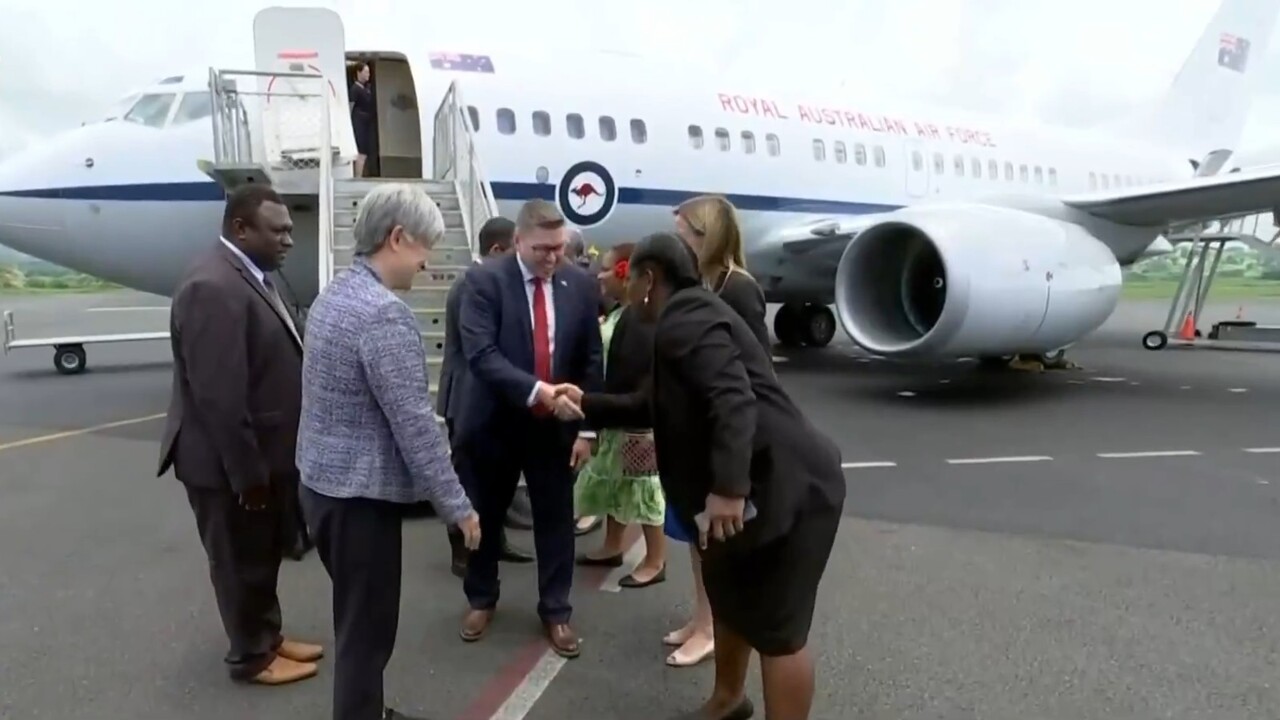
“We have an interest in a Pacific which is stronger economically, in which sovereign choices can be made, in which health and prosperity can be improved,” the Foreign Minister said. “Australia has an ethical interest in that; we have a regional interest in that as a member of the Pacific family.”
Mr Napat said Australia was Vanuatu’s closest partner in dealing with humanitarian crises such as 2020s devastating Tropical Cyclone Harold, and it was grateful for Australia’s support in building the new wharf and refurbishing the country’s main police barracks.
Despite high levels of Chinese investment in Vanuatu and a surge in public infrastructure projects funded by Beijing, Mr Napat said his country had “not even discussed” a security partnership with China.
Mr Napat applauded Australia’s new commitment to reducing carbon emissions by 43 per cent on 2005 emissions by 2030, saying his country was at risk from rising sea levels, ocean acidification, and more frequent and intense cyclones.
The delegation arrived as Vanuatu scrambled with the help of Australian experts to restore its government systems after a devastating cyber attack.
Mr Napat said the perpetrator of the attack was yet to be identified, but about 75 per cent of systems had been brought back online.
The Australian MPs met with local chiefs, hearing concerns about the welfare of the country’s workers in Australia under the Pacific Labour Mobility program.
Vanuatu is the leading nation participating in the program, with nearly 10,000 of its workers in Australia employed in predominantly agriculture and meat processing jobs.
Chief Willie Plasua, who heads Vanuatu’s Malvatumauri Council of Chiefs, said the program was leading to marriage breakdowns, and urged the Australian government to support the deployment of community elders to provide counselling for the workers in Australia.
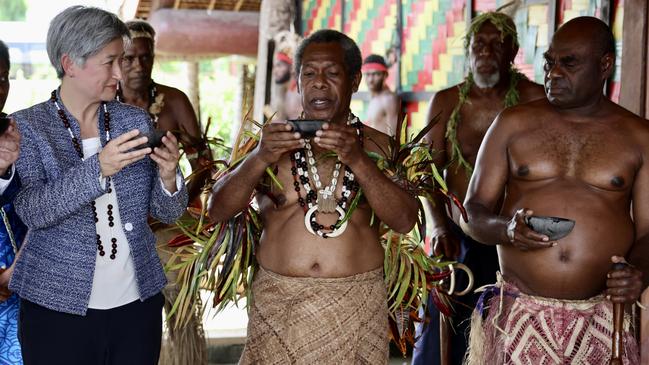
“Maybe they stay in Australia, they are in a different environment, a different place, and they forgot about their cultural relationship, and they are separating, the couples,” he said.
Mr Napat urged welfare and pastoral care improvements to the program, and efforts to streamline visa processing and make travel costs more affordable.
Mr Conroy said the scheme was critical for lifting Vanuatu’s people out of poverty, providing about $150m a year in remittances into the country’s economy, while also filling vital roles in Australia.
He said the government was working on a series of reforms to make the program work better, offering workers the ability to shift employers in cases of abuse, and establishing a pilot program allowing 200 workers to bring their families with them to Australia “to alleviate the separation issue”.
Lowy Institute Pacific program manager Meg Keen said Vanuatu was a non-aligned country, and was working to maintain its stated “friend to all” status.
“Vanuatu will continue to reflect its own, not Australia’s, stand on foreign policy issues related to China, climate change and decolonisation. It is not surprising that differences may occur,” Dr Keen said.
She said the security relationship between the countries was evolving, and included infrastructure upgrades and police training.



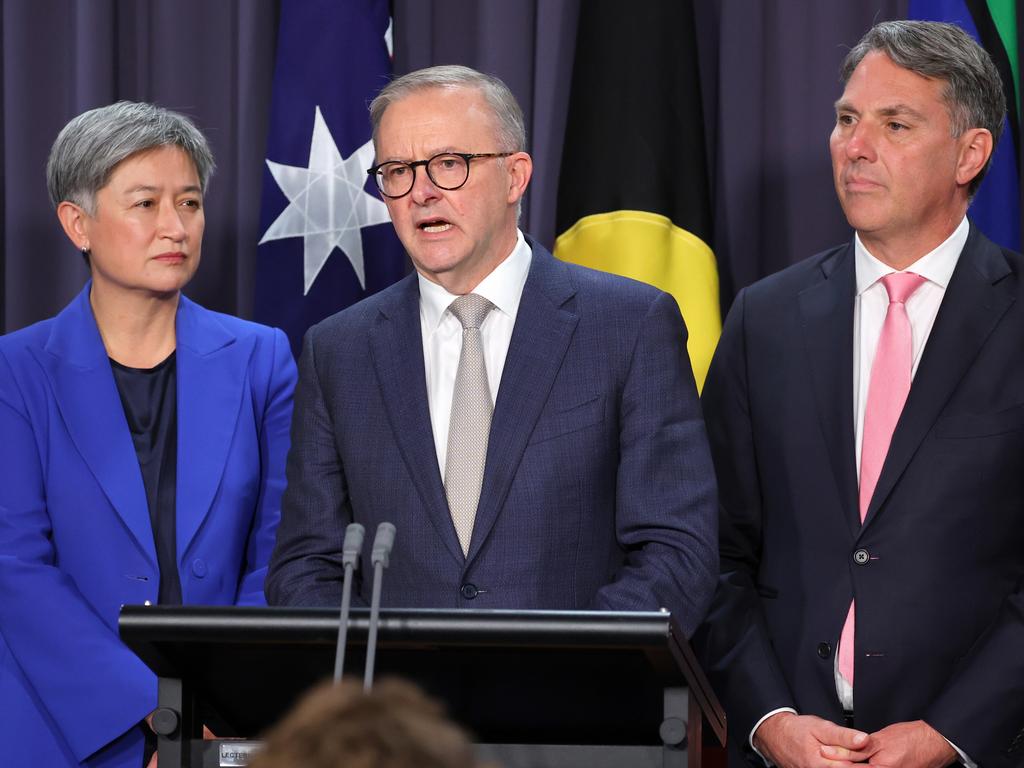
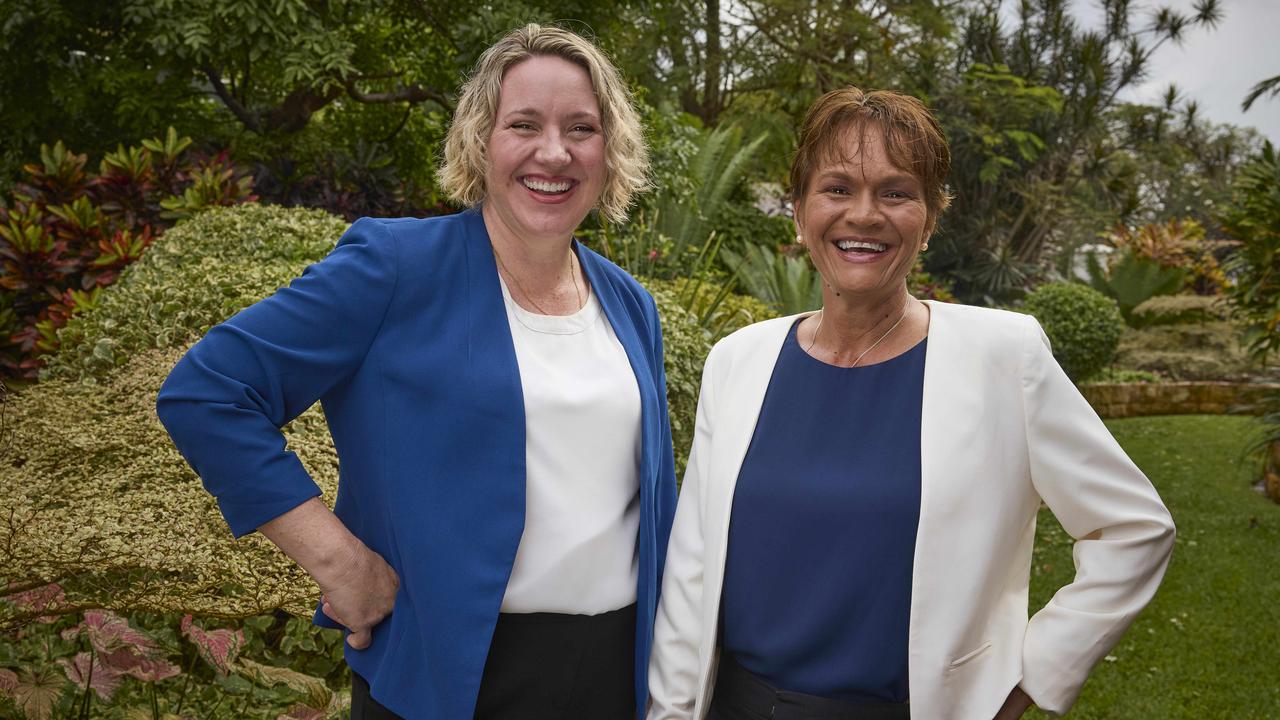
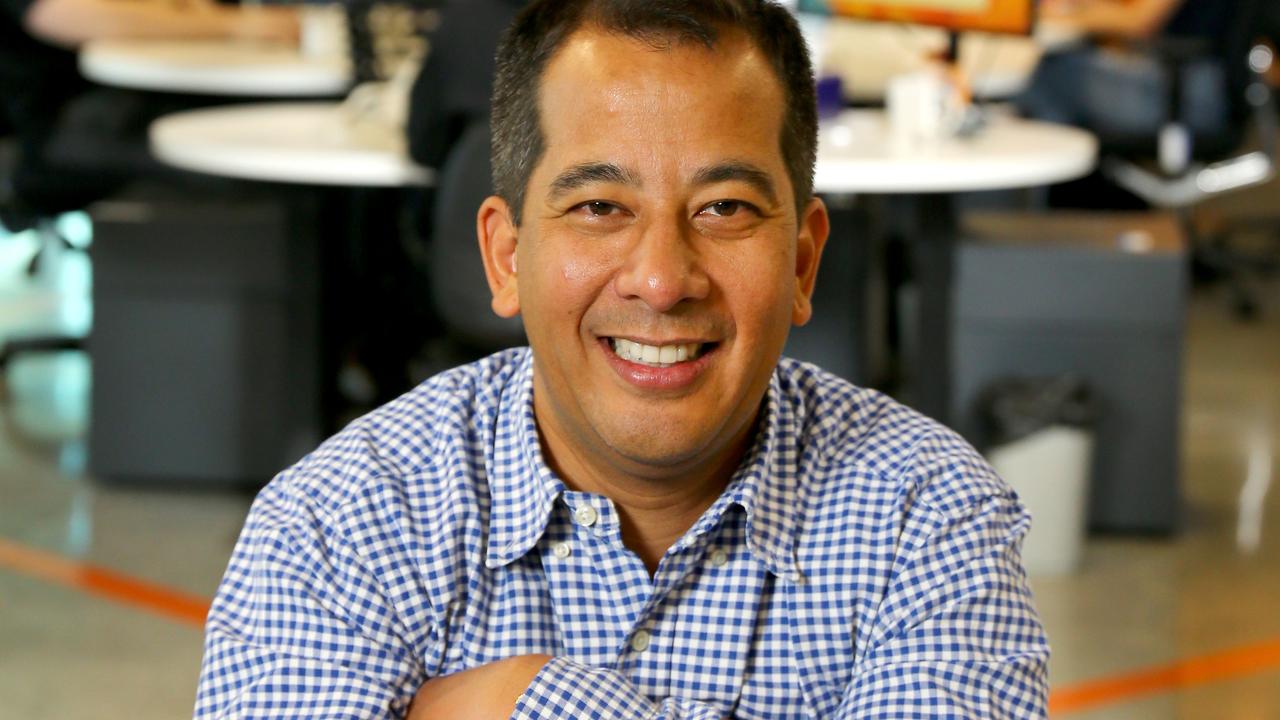
To join the conversation, please log in. Don't have an account? Register
Join the conversation, you are commenting as Logout